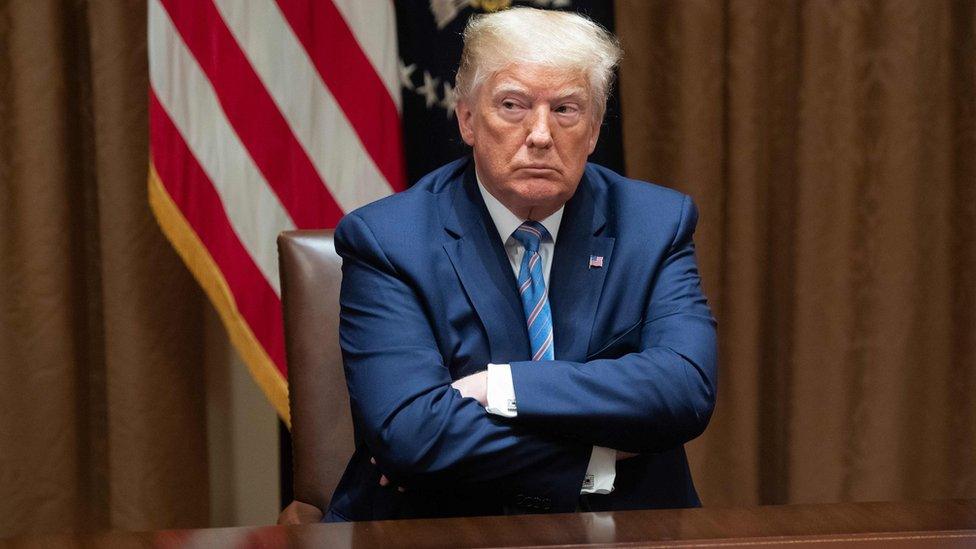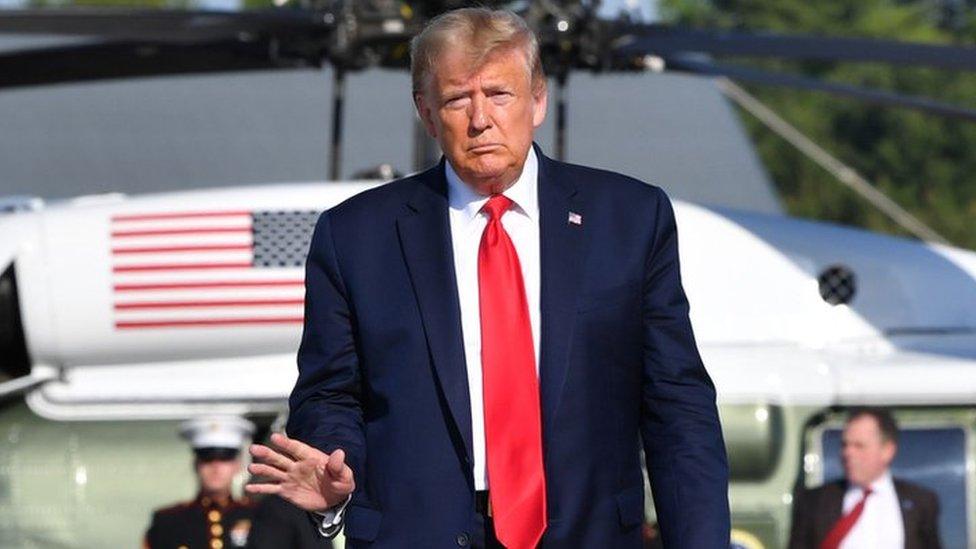Trump confirms plan to cut troops in Germany
- Published

Mr Trump has long complained that Nato members should spend more on their own defence
US President Donald Trump has confirmed plans to withdraw 9,500 American troops from bases in Germany.
He accused Germany of being "delinquent" in its payments to Nato, and said he would stick with the plan unless Berlin changed its course.
Mr Trump has long complained that European members of Nato should spend more on their own defence.
Germany's ambassador to the US said US troops were not there to defend Germany but defend transatlantic security.
Emily Haber added that Berlin had been informed of the plan.
Rumours of cuts were reported earlier this month by US media, amid rising tensions with its allies in the Europe's North Atlantic Treaty Organisation (Nato) under Mr Trump.
During a cabinet meeting, Mr Trump said: "So we're protecting Germany and they're delinquent. That doesn't make sense. So I said, we're going to bring down the count to 25,000 soldiers."
He has said that Nato members should no longer be relying so heavily on the US to shoulder the costs of maintaining the alliance.
The argument between the allies focuses around the target agreed by all alliance members that defence spending should reach 2% of GDP (gross domestic product, the total value of goods produced and services provided) by 2024. Germany, along with many other countries, has yet to meet this target.


In formally acknowledging plans for a sizeable US troop cut-back in Germany - a proposal that first leaked to the press earlier this month - President Trump has taken a step that will deeply concern the German government and will also alarm many of Washington's other Nato allies.
The conventional view up to now, voiced by Germany's ambassador to the US, Emily Harber, is that US troops were in Europe not so much to defend Germany, as to defend trans-Atlantic security.
Analysts also point out that the sizeable US presence in Germany also affords the US an important transit and jumping off point for operations in the Middle East, Africa and elsewhere.
Strategic experts see this as a step that can only benefit Russia and weaken Nato as a whole. And it's a move that will be closely watched by Washington's allies way beyond Europe, many of whom already see the Trump Administration as an unpredictable and increasingly unreliable partner at a time of growing great power competition.

Speaking to reporters on Monday, he also accused Germany of treating the US "very badly on trade".
"We're negotiating with them on that, but right now I'm not satisfied with the deal they want to make.
"They've cost the United States hundreds of billions of dollars over the years on trade, so we get hurt on trade and we get hurt on Nato," he said.
He also claimed that Germany was profiting from having the troops there because soldiers spent their money in the country.
The US military presence in Germany is a legacy of the post-World War Two Allied occupation of the country. Germany currently hosts by far the largest number of US forces in Europe, followed by Italy, the UK and Spain.
Some US personnel based in Europe support non-Nato operations and US military numbers fluctuate as forces are rotated in and out of Europe.
- Published6 June 2020

- Published18 February
